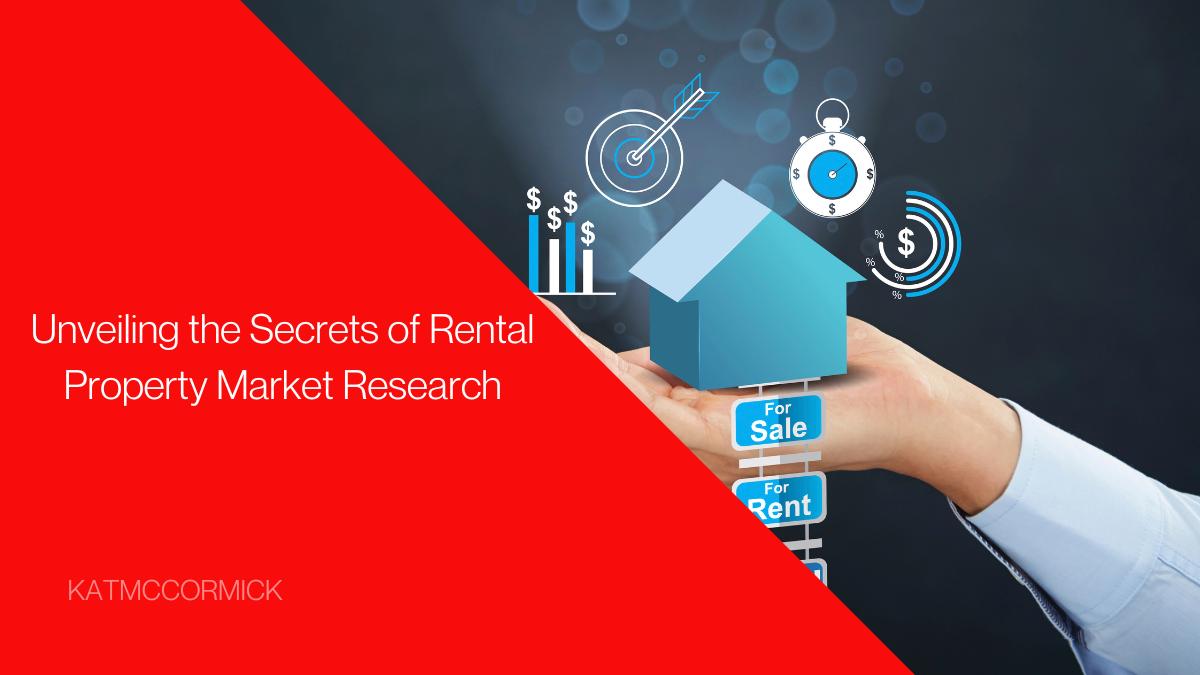Rental property investing can be rewarding if done correctly, but only after extensive market analysis has been conducted. Rentability analysis is more than simply a numbers game; it also necessitates familiarity with market conditions, economic indicators, and tenant preferences in the area. In this all-inclusive manual, we will show you the ropes when it comes to conducting market research so that you can make educated decisions and get the most out of your investments.
Evaluating Rental Property Potential: Tips for Conducting Market Research
Here, we’ll get down to brass tacks and discuss the meat and potatoes of the issue at hand: conducting extensive market research to assess the possibilities of rental properties. Let’s break down each stage:
- Historical Property Values: In order to foretell future appreciation, it is important to analyze how property prices have changed over the past many years.
- Neighborhood Growth: Look at the area’s economic growth potential, planned construction, and infrastructure upgrades.
- Rental Demand: Think about issues like population growth, employment openings, and migration patterns to assess the local demand for rental units.
Analyzing Comparable Rental Listings
Effective market research relies heavily on comparative analysis. Proceed to:
- Rental Rates: To select a competitive yet profitable pricing plan, it is helpful to look at the rental prices of nearby homes that are similar to yours.
- Occupancy Rates: To get a feel for the area’s popularity and demand, check the occupancy rates of other properties that are similar to yours.
- Amenities and Features: To set yourself apart from the competition, have a look at the services and facilities provided by similar rental houses in the area.
Exploring Economic Indicators
You may learn a lot about the state of the local rental market just looking at economic data. Attend to:
- Job Market: Find out what the local job market is like in terms of hiring, layoffs, and industry growth.
- Income Levels: Find out what people typically make in the neighborhood so your rental property is suitable for them.
- Market Stability: Look into things like inflation rates and GDP growth to get a sense of the region’s economic health.
Identifying Tenant Preferences
A profitable rental establishment is one that values tenant feedback. Consider:
- Amenities: Find out what features renters value most, such as a fitness center, outdoor areas, or pet-friendly policies.
- Transportation: Check the location’s closeness to main roads, highways, and public transportation options.
- Lifestyle Factors: Find out what local restaurants, shops, and landmarks will improve your tenants’ quality of life.
Leveraging Technology and Data
Incorporate modern methods into your market analysis:
- Online Platforms: Access rental information, property listings, and market trends via online real estate portals.
- Data Analytics: Use data analytics software to learn about the health of the rental market, pricing movements, and competition.
Building a Network of Experts
Get in touch with real estate agents in your area:
- Realtors: Work with seasoned real estate agents who understand the local market well.
- Property Managers: Consult with property managers, who are in the best position to advise you on issues such as tenant demand, maintenance expenses, and what to expect from your tenants.
- Local Investors: Connect with seasoned investors and learn from their insights by joining a local real estate investment group.
Frequently Asked Questions
Can I rely solely on rental property calculators for market research?
Estimates from rental property calculators are helpful, but they often fail to account for important regional details. To make the most educated choices, you should supplement calculator output with extensive market research.
How do I assess the potential for property value appreciation?
Look at local development plans and economic indicators to get a feel for the area’s potential for property value growth.
What role does property management play in evaluating rental property potential?
The success of a rental property is directly tied to the quality of the property management. Tenant retention, new lease signings, and income can all benefit from a competent property manager.
Is it better to invest in an up-and-coming neighborhood or an established one?
There are benefits to either choice. Newer locations have more room for expansion, whereas more established ones are more secure. Think about your investing horizon and risk appetite before making a move.
How can I accurately estimate repair and maintenance costs?
Repair and maintenance costs can be estimated with the help of skilled contractors and property managers. Maintenance should be a priority if you want to keep your rental property occupied.
What impact does local legislation have on rental property potential?
The potential of a rental property can be considerably impacted by local rules such as rent control laws and property taxes. Know the laws in your area so you can prepare for any difficulties that may arise.
Final Words
The foundation of determining a rental property’s viability is market research. Making educated decisions that lead to a successful and profitable rental property venture requires research into local real estate dynamics, analysis of comparable listings, exploration of economic indicators, knowledge of tenant preferences, use of technology, and cultivation of a network of experts. Keep in mind that expertise and planning are the bedrocks of real estate success. If you put in the time to do your homework, your investments will be in good shape.
- Key Strategies to Mitigating risks in Rental Property Investments
- The Essential Role of Property Management Companies
- The Ultimate Guide to Handling Evictions and Tenant Conflicts
- The Hidden Impact of Taxes and Insurance Costs
- Protect Your Property: Essential Practices for Effective Tenant Screening

